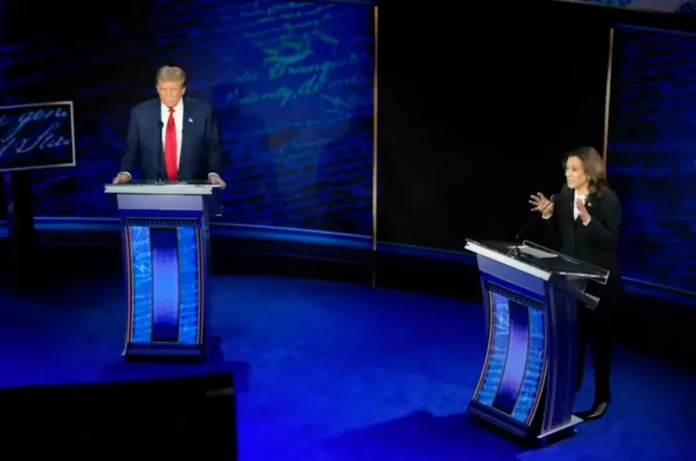RESTON: In a yoga studio in Virginia, a few dozen participants lay quietly with their eyes closed, the soft sound of a gong filling the room. This peaceful scene was a brief reprieve for many seeking solace before the highly charged election set for Tuesday. Across America, individuals are yearning for moments of tranquility as they brace themselves for a vote steeped in tension and intense political rivalry.
Presidential candidates Donald Trump and Kamala Harris have amplified voter anxiety with their fervent campaigns, portraying the election as a crucial battle for the future of the nation. The rhetoric has heightened an already strained political atmosphere, leaving many feeling fatigued and hoping for an end to the relentless cycle.
“It’s like this underlying stress that I can’t control,” expressed Cheryl Stevens, 55, after completing the yoga and meditation session in Reston on Saturday. Organizers had promoted the event as a remedy for the prevalent election-induced anxiety. Stevens, a supporter of Harris, confessed that the uncertainty and stakes of the election have been affecting her sleep, reducing her rest to just four hours on some nights and putting her in a state of hypervigilance. “What if we have to go through this all over again?” she wondered, dreading the thought of Trump potentially reclaiming the presidency.
Millions of voters are now faced with a profound choice between a former president accused of undermining the democratic process in 2020 and a vice president who could make history as America’s first female leader. The deep divide has strained relationships among spouses, friends, and family members, surfacing intense emotions about the country’s future.
According to the American Psychological Association (APA), political stress has escalated. “Americans are feeling increasingly stressed about politics,” noted a statement on their website. This election cycle has been marked by dramatic twists, including assassination plots, late entries into the race, heated debates, and ongoing legal battles.
A survey conducted by the APA in October revealed that 69% of adults in the United States identify the presidential election as a significant source of stress, surpassing the 68% figure from the 2020 election. The current level is considerably higher than the 52% reported during the 2016 campaign, signaling the intensification of political stress in recent years.
Among those experiencing stress is Joe Upcavage, a hemp farmer and Trump supporter who attended a rally in Salem, Virginia, four hours away from the Democratic stronghold of Reston. “You’re hit by the media from all sides, with so much false information. You can’t post anything without it being flagged,” he shared. Upcavage described how his community in Levittown, Pennsylvania, is engulfed in anxiety due to claims of voter fraud and confusion. “It’s a mess, a complete disaster,” he said. For Upcavage, simple, hands-on activities like tending to his chickens and chopping wood serve as his way to manage stress.
As election day approaches, countless articles and experts have shared coping tips, from breathing exercises to avoiding social media at bedtime. Susan Albers, a clinical psychologist at the Cleveland Clinic, explained, “It leads to catastrophizing, where people imagine the worst-case scenario.”
Reggie Hubbard, one of the yoga session leaders in Reston, reminded the attendees of the importance of self-care and connecting with others. “I’m glad you chose to be here with others instead of doom-scrolling,” he joked, sparking some laughter. “We’re all in this together, whether we like it or not. So why don’t we try to like it?” he encouraged.
This sense of unity will face a test on Tuesday, as Americans confront the reality that nearly half the country may hold a different vision for the nation’s future.


